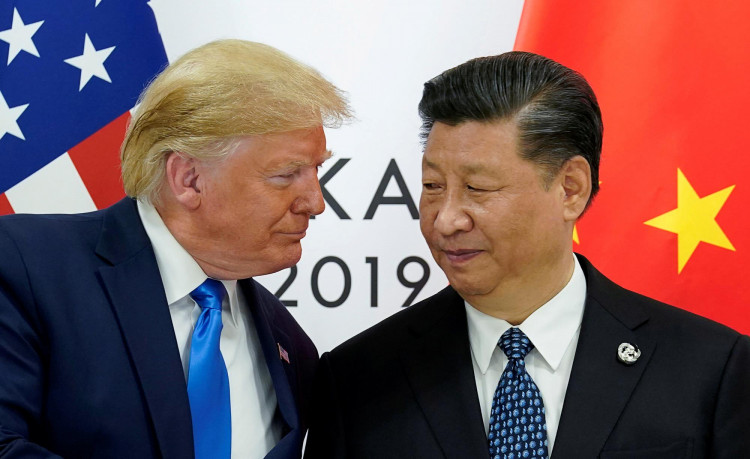With Donald Trump returning to the White House after a decisive election victory, China's economy is on edge as it braces for what could be one of the most challenging periods in recent history. Trump has vowed to impose a 60% tariff on all Chinese imports-an unprecedented escalation from the 7.5%-25% tariffs during his first presidency. This move, aimed at curbing China's trade influence, threatens to destabilize an economy already grappling with mounting internal challenges.
China's economic vulnerabilities have intensified since Trump first targeted the nation with tariffs. A key difference this time lies in the collapse of its property market, a sector that once fueled nearly a quarter of the country's economic output. "The real estate crisis has undermined local government revenues," a senior economist noted, adding that this downturn could limit China's ability to weather external shocks like tariffs. In contrast to 2018, when property market strength helped buffer tariff effects, the sector is now in a deep slump, and recovery remains uncertain.
Debt remains another pressing issue for China. The property sector's decline has saddled local governments with unsustainable debt. According to the International Monetary Fund, China's government sector debt totaled 147 trillion yuan ($20.7 trillion) as of 2023, with total household and corporate debt surpassing 350 trillion yuan-approximately three times the size of its economy. Such high leverage leaves little room for economic maneuvering, making China more vulnerable to trade shocks.
Domestically, China faces weak consumer demand driven by low wages, high youth unemployment, and a thin social safety net. With household spending comprising just under 40% of GDP-significantly lower than the global average-the country remains heavily reliant on export-driven growth. While Beijing has focused on enhancing its manufacturing sector, excelling in electric vehicles, solar panels, and batteries, this strategy has also attracted foreign tariffs, including those from the U.S. and Europe.
Deflationary pressures are compounding China's economic woes. The combination of a weak property market, heavy debt, and muted consumption has led to factory gate deflation. Producer prices have fallen significantly, exacerbating the risk of broader economic contraction. "Deflation hurts consumption and growth, and it could worsen if tariffs hit external demand," said an economic analyst.
Currency depreciation, which China employed in 2019 to partially offset the impact of U.S. tariffs, may not be an option this time. A full depreciation of the yuan would require it to drop 18% against the dollar-levels not seen since the 1990s Asian financial crisis. With authorities wary of capital outflows, drastic currency moves appear unlikely.
Amid these challenges, Beijing's tone remains cautiously optimistic. In a press briefing, Chinese foreign ministry spokeswoman Mao Ning emphasized China's commitment to "mutual respect, peaceful coexistence, and win-win cooperation" with the U.S. She did not comment directly on Trump's reelection but stressed that China's policy toward Washington remains unchanged.
Meanwhile, the reaction on Chinese social media has been mixed, with users on platforms like Weibo expressing concerns over how Trump's policies might impact trade and livelihoods. "My family does foreign trade, and their world has just collapsed," read one comment, while another advised those in trade to consider career changes.
In Shanghai, opinions varied. "I think Trump is going to be pretty tough," said Jerry, a procurement manager, reflecting fears of renewed trade tensions. Others, like small business owner Chester Song, expressed indifference, noting that American politics often have a limited impact on everyday life in China.
Economic analysts warn that Trump's potential tariffs could deepen China's economic challenges. Beijing's path forward involves difficult choices: reforming its internal economy, managing trade disputes, and navigating an unpredictable U.S. administration bent on economic confrontation. How China responds in the coming months will shape not only its economic future but also the broader contours of global trade.
This article includes reporting from Reuters and AFP.






